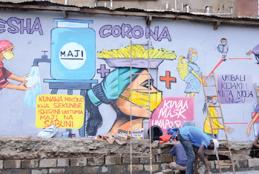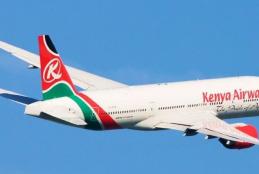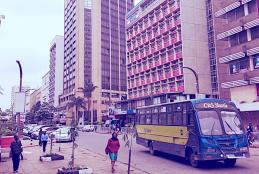COVID-19
Transportation in Kenya: The Weak Link in the Fight Against COVID-19
The novel coronavirus (COVID-19) pandemic has spread rapidly across the globe, disrupting daily activities, ruining economies and livelihoods and in extreme cases, claiming lives. It has thrown the whole world into a crisis and for the first time in history, humanity is fighting a common enemy. This is so because everyone has a role to play in this unprecedented global war. Transport operators too, have a key role to play to prevent the spread of the infection while keeping essential services like food and medicine supply running.
COVID-19 is a Complex Social Problem, Change the Approach
Early April amid the panicky crescendo of drumbeats for strong-arm solutions for managing COVID-19, my friends and I held series of online touch-base sessions. The friends were in four different continents- Africa (Kilifi, Kenya), America (Boston, USA), Europe (Leeds, England) and Asia (Kathmandu, Nepal). From the onset, we were struck by the commonality of the responses being adopted across the world – rapid militarization and medicalization of the pandemic all peppered in a variety of politicization.
Impact of COVID-19 on Travel and Tourism Industry in Kenya
The COVID-19 pandemic has taken the whole world by storm bringing it to a virtual standstill. One of the economic sectors most hard hit is the travel and tourism industry. That is hardly surprising given that a record 1.5 billion tourists traveled internationally in 2019. The outbreak of the disease and its rapid spread across the globe saw heightened uncertainty in the sector as travelers required up-to-date and reliable information before deciding on their next destinations and itineraries.
COVID-19 Pandemic and International Students Abroad
Written by Dr. Mercy M. Mugambi
COVID-19 and Herbal Medicine
With the continuously expanding COVID-19 pandemic, increasing numbers of patients and contacts are progressively posing a global challenge. Being novel, there is so much that is yet to be known about this virus and how to manage it. This scenario is not only true for conventional medicine, but is also applicable to herbal medicine and natural products. An ideal anti-COVID-19 medication (or a combination of agents) should be safe for patients while conferring three basic therapeutic effects (and/or preventive health benefits):
COVID-19 Pandemic and International Students Abroad
International students’ enrollment in higher education abroad has expanded considerably in the last decades. Emigration for tertiary education is becoming more common, particularly among students from developing countries. International students study at thousands of colleges and universities abroad. They contribute to the diversity and internationalization of their classrooms, campuses, and communities. For example, these students add different perspectives in the classrooms and enhance the mutual understanding and appreciation of the differences found around the world.
Follow the Bridge: COVID-19 and Remote Learning in Kenya
Written by Dr. Anne A. Aseey
The Digital Age is understood differently across continents but in Africa, the context and use could be different though the paradigm of immersion in technology could be holding in both circumstances. The rate of emergence of new technologies is alarming but human beings will adjust to survive and thrive in uncertain times.
Corona Virus (COVID-19) Pandemic: A Wake Up Call For Africa
The coronavirus pandemic was never among the major challenges alluded to by researchers and authors as likely determinants of the 21st Century. The SARS (Severe Acute Respiratory Syndrome) Virus infection of 2003 had come and passed and people moved on with life, with performance of world economies never being associated with the SARS. Come December 2019, and the World Health Organization (WHO) China office reports a case of pneumonia like infections of unknown cause in Wuhan City, Hubei Province.
Follow the Bridge: COVID-19 and Remote Learning in Kenya
The Digital Age is understood differently across continents but in Africa, the context and use could be different though the paradigm of immersion in technology could be holding in both circumstances. The rate of emergence of new technologies is alarming but human beings will adjust to survive and thrive in uncertain times.








